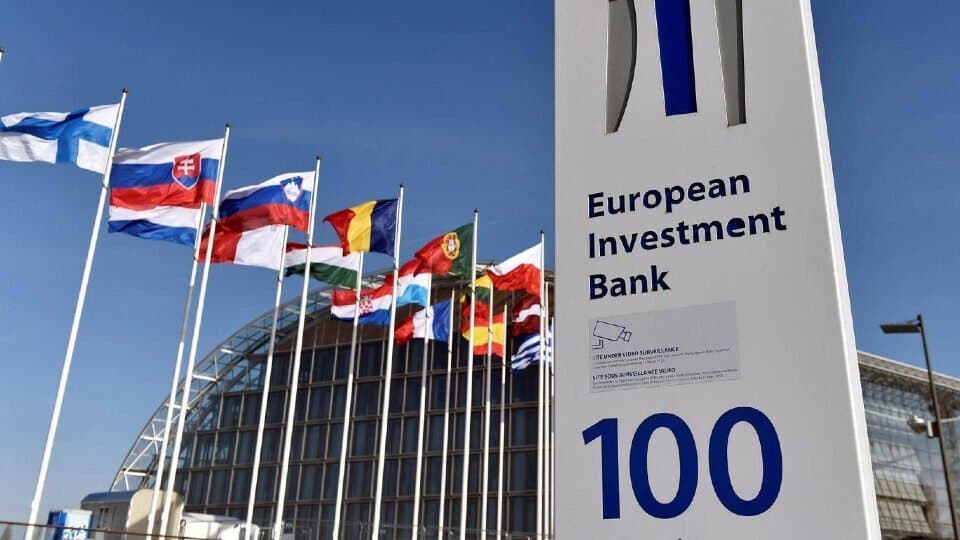Cyprus has signed the second tranche of a €200 million loan agreement with the European Investment Bank (EIB), unlocking an additional €100 million to support road infrastructure and sustainable transport projects across the island.
The agreement was signed on Thursday at the Finance Ministry by Finance Minister Makis Keravnos and EIB vice president Kyriakos Kakouris. It forms part of a broader €400 million national investment programme running through 2029, aimed at improving connectivity, road safety, and climate resilience.
Kakouris made clear that the new tranche “is not simply financial support for a specific project. It represents our shared commitment to creating better, safer and more sustainable infrastructure that will substantially improve the daily lives of the Cypriot people.”
He said the investment would help reduce accidents, improve regional access, and promote sustainable urban mobility.
Kakouris added that infrastructure is a “catalyst of social cohesion, facilitating access, communication and development.”
In addition to the funding itself, he noted that the EIB provides specialised technical assistance to ensure proper implementation. He also underlined that the loan terms were highly favourable, offering long maturity and grace periods, “the best terms that the Ministry of Finance can secure.”
For the government, this agreement is more than just a transaction. As Keravnos put it, “this is yet another proof of the relationship of trust and effective cooperation that we have developed over the years.”
He added that this cooperation is not based merely on numbers, but on shared values and common goals, with a joint belief that meaningful partnerships bring tangible results for citizens.
The €200 million loan, he explained, will co-finance infrastructure projects valued at approximately €400 million. Some have already started or are under construction, while others are being co-funded by the EU through the Connecting Europe Facility and the THALEIA 2021–2027 cohesion policy programme.
“These are projects of particular strategic importance, which are part of the core of our development policy and aim primarily at improving road safety, accessibility and the quality of life of citizens,” he said.
In addition, they promote urban-rural connectivity, strengthen local economies, and support job creation. At a time when smart and climate-resilient infrastructure is more important than ever, Keravnos described these interventions as essential for sustainable progress.
Kakouris also said the EIB plans to offer targeted support in response to the recent wildfires in the Limassol district, stressing the importance of investing in infrastructure that can help prevent future disasters and improve resilience.
Keravnos, for his part, confirmed that the government is already working to identify where this additional support could be most effectively used.
This latest agreement marks the fifth EIB loan in the transport sector, raising Cyprus’ total borrowing from the Bank for road infrastructure to more than €570 million.
Keravnos noted that EIB loans provide Cyprus with a reliable tool to implement vital infrastructure projects that “meet the real needs of the country.”
Representing the Ministry of Transport, director Eleftherios Eleftheriou said that the current agreement introduces a flexible structure. The loan is designed as a framework facility, giving authorities the ability to select and prioritise projects as needed.
He pointed out that the projects include Phase B3 of the Nicosia’s highway, Phases C and D of the Nicosia–Troodos, and the Nicosia–Palaichori. Five sustainable urban areas’ projects will also be supported, enhancing infrastructure for public transport users, cyclists, pedestrians and people with disabilities.
In addition, seven road safety projects will be carried out, aimed at reducing traffic accidents and improving conditions on key roadways. These projects include upgrades to roundabouts, bridges and tunnels, lighting systems, noise barriers and general safety interventions.
“All of the above support the overall land transport strategy in Cyprus,” Eleftheriou said.
He stressed that many of the projects have “European added value,” either because they are part of the trans-European transport network or because they are co-financed by EU programmes.
Eleftheriou noted that the EIB has supported more than €1 billion in cumulative projects in Cyprus over the past 25 years, not only in transport, but also in sectors such as energy, education, student accommodation and climate resilience.
In fact, EIB funding for Cyprus in 2024 alone reached approximately €225 million. This includes financing for energy efficiency projects, green mobility, and other long-term investments that align with EU goals.






Click here to change your cookie preferences